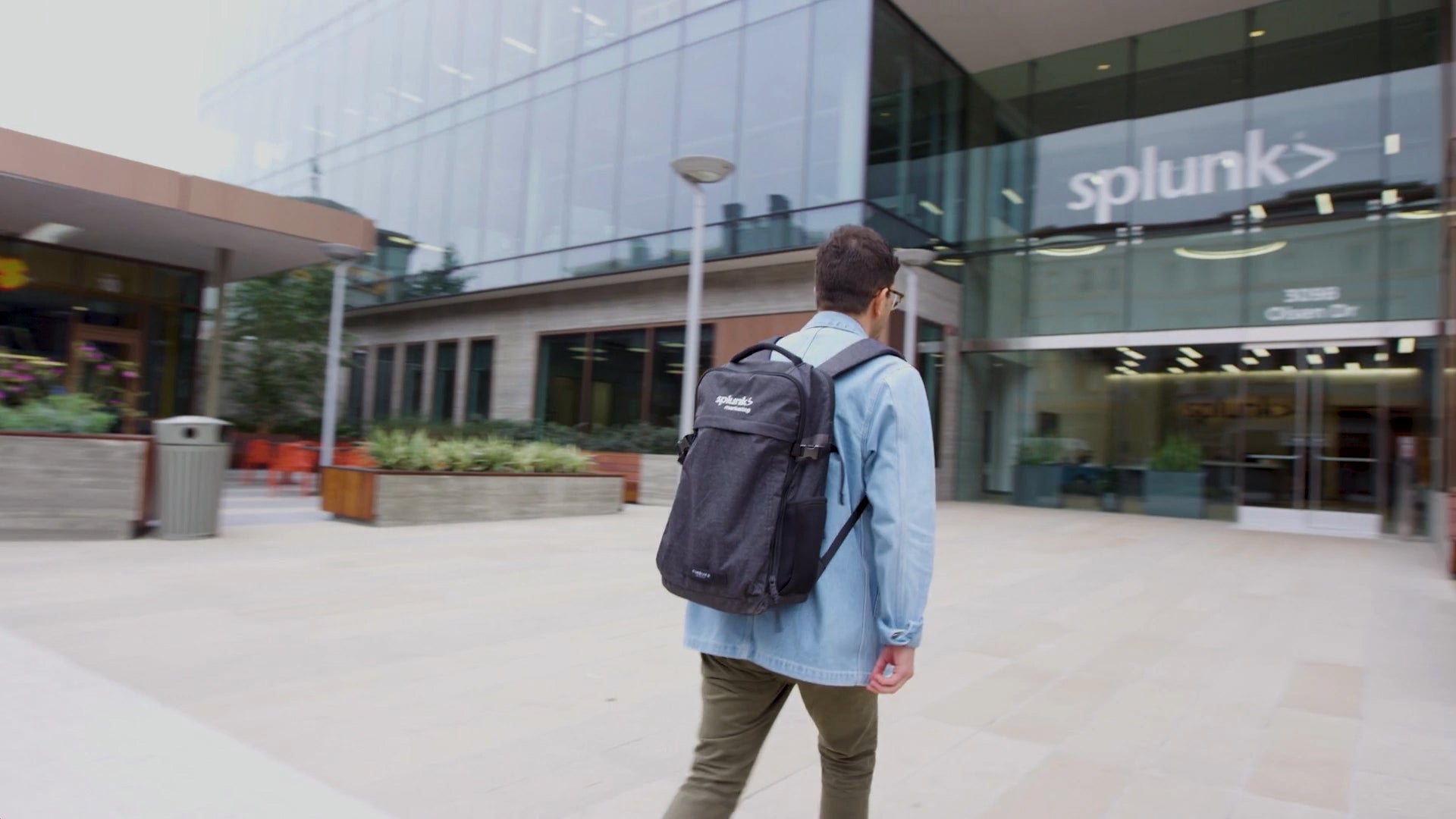Exceptional co-op student experience makes this company a top choice for Waterloo students
Enabling students to become well-rounded professionals is a big part of how an American technology company is making a name for itself with University of Waterloo co-op students.
San Francisco-based Splunk, which describes itself as the Data-to-Everything Platform, offers co-op students the opportunity for growth through real-work experience, professional development and work-life balance.
“For us, it’s about helping (students) grow their career and setting them up in a good way,” says Jesse Chor, head of mobile engineering at Splunk. “It’s a long-term view, we want to create opportunities for them to come back full-time and give something exciting. I think the biggest thing we focus on is well-roundedness. When we have a student, we look at the résumé, we look at what’s missing, what were terms that have done in the past. It’s really rounding them out, so they have a more filled-out skill set.”
A leader in big data, machine learning and edge computing, Splunk gives businesses a complete view of their data outcomes in real time. But what sets them apart at Waterloo is the exceptional experience they offer their co-op students.
Splunk is the first-ever Impact on Student Experience winner as part of the Waterloo Co-operative and Experiential Education (CEE) Employer Impact Awards. This award winner was chosen through votes from Waterloo students.
“The fact that University of Waterloo students voted for Splunk to win this award shows just how much impact our student voices can make – and how much co-op employers like Splunk encourage them to be strong, capable and career ready talent with the potential to be future global leaders,” says Ross Johnston, executive director of Co-operative Education.
Workshops on topics such as career development and even taxes are also a part of the student experience, according to Chor.
“We do a lot of things where hopefully it’s a very essential skill, especially in today’s environment,” says Chor. “We help students really grow more in common areas that they might need down the road.”
“(Co-op students) bring a lot of energy and a new dynamic environment. There's also the diversity aspect, it's great bringing people from different backgrounds, different cultures. Being able to come learn, but also help us learn from them is huge.”
The organization aims to empower its younger workforce by trusting them with critical projects and or missions that aligns with their previous experiences and skills.
“When I thought about it, I’d split the work environment for a co-op into two really unique aspects, the first is opportunity,” says Dylan Conway, a Systems Design Engineering graduate. “You know Splunk really trusts you, despite being a student, despite being in year one, two, three, four or five. They really value your input and take the time to listen and incorporate your feedback.” Conway is now a full-time employee at Splunk.
“I think what makes Splunk really different is just the quality of people working there, everyone is so on board with us,” says Jim Zhu, a fellow full-time employee and Computer Science graduate. “(Splunk) is committed to helping us succeed and working with us to make ourselves like better. Everyone on our entire team is super smart and they're always so focused on helping us improve our skills, and really sharing the knowledge that they've gained through their experiences to helping us succeed as interns.”
Waterloo and Splunk

“I think being from Waterloo, (I’m) biased, but Waterloo is absolutely the best in the world,” Chor says.
Splunk provides a culture and environment that supports a rich learning experience, which is a key driver for success as co-op students prepare to graduate and enter the workforce.
“I look at who’s going to have my job one day, and how do I get them there,” says Chor on developing students. “I’m really excited about our full-time conversions, which is our first batch of co-op students. They’re already helping is recruit the next generation of co-op students.”
Splunk also focuses on giving its students a more well-rounded portfolio of skills when they have completed their work terms.